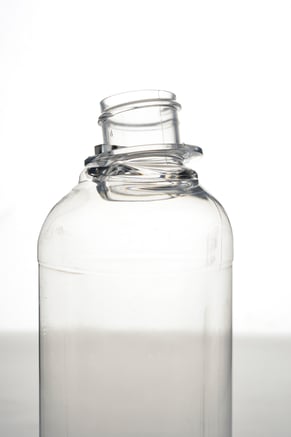 No matter what type of container you are manufacturing, it’s inevitable that some of them will have defects that can result in leaks. Leak detection equipment identifies and mitigates this problem, but how can you determine exactly what equipment your line needs? If you have leak detection equipment already, what can you do if it is missing defects or not functioning well with a new container?
No matter what type of container you are manufacturing, it’s inevitable that some of them will have defects that can result in leaks. Leak detection equipment identifies and mitigates this problem, but how can you determine exactly what equipment your line needs? If you have leak detection equipment already, what can you do if it is missing defects or not functioning well with a new container?
The answer to both of these scenarios is to evaluate your machines regularly and minimize defects with empty container feasibility testing. In this article, we will explain feasibility testing and the many benefits it can offer your business.
What is Feasibility Testing?
Feasibility testing is a method of evaluating empty containers to see what is possible on a leak tester, indirectly gauging the leak testing system performance. Is your leak testing equipment catching what you need it to, and if not, why?
Here at ALPS, we perform empty container feasibility testing services most commonly for two types of customer needs: testing machine capabilities and categorizing the severity of a defect. Here is more on what you need to know about both of these potential testing scenarios.
Test Type One: Evaluating Leak Testing Equipment Capabilities
This first type of feasibility testing determines if a machine can test the type of container that your company uses and whether it will reliably detect the hole size (or other leak source) you need it to. When a customer doesn't have a specific hole size in mind, we will advise as to the hole size different ALPS models can detect at the speed for the container.
Before you invest in leak testing equipment or start production on a new product, it’s critical that you complete feasibility testing to ensure that your leak detection strategy will work in your unique environment.
ALPS can provide detectable hole size estimates for a container at a speed on a specific ALPS machine from a container drawing. This is based on calculating the expected test time available on the machine and using similar applications to determine the expected detectable hole size. When there is no ALPS machine in the line or for a new application, we will select the leak tester (or testers) that will fit the application and provide a hole size estimate of the container at the speed on each.
There are some situations that may result in further testing. These include when the estimated detectable hole size range falls outside the customer's desired hole size, when the container has unique features that may affect the test or handling, or when the customer wants a bit more confidence in the estimate.
In these circumstances, the customer can contact us and then arrange to send samples (along with speeds and current ALPS tester serial or model number) to ALPS for a feasibility test. We can perform the leak test on the containers as if it were on the customer's leak tester, and provide a recommendation for a leak testing solution that comes with a higher degree of confidence.
Test Type Two: Evaluating Defects
When a container manufacturer gets back leak defects from their customer, often they need to evaluate why their current leak testing equipment is not detecting the defect. This is where Defect Feasibility Testing can help—it can estimate the approximate size of the defect and advise what it might take to detect it.
Defect Feasibility Testing is used to ensure the leak testing equipment can catch specific defects at the line speeds and conditions. If the testing determines that the machine should be able to catch a particular defect, ALPS will offer customer support to adjust the test parameters or machine setup to meet the required needs. In some cases, the system currently on the line may not be capable of detecting the defect, and ALPS may suggest a system or option capable of detecting the defect.
In addition, if a customer has a specific issue that their testing needs to catch, our engineering team can study it to recommend potential modifications or a different machine that will correctly reject products with this issue.
Potential solutions include a larger machine size (additional heads) or investing in a more modern system. If your machines need to catch defects at a certain speed, we can find a solution to help.
Learn everything you need to know about what causes plastic container defects and how to prevent them in this blog post.
Defects A Feasibility Test Can Identify
 To complete a feasibility test that will result in actionable information for your company, ALPS will test your empty container as if it were on a line at your chosen speed, looking for the hole size or other defect you want to detect and then evaluate samples for confirmation.
To complete a feasibility test that will result in actionable information for your company, ALPS will test your empty container as if it were on a line at your chosen speed, looking for the hole size or other defect you want to detect and then evaluate samples for confirmation.
When we get defect samples back, we will categorize them according to the type and severity of the defect, and advise on potential solutions to detect them before they leave the plant, protecting your inventory from holds or recalls.
Here are some common defect examples and their sources:
Process Defects: A hole caused by something in the manufacturing process.
Seal Surface Defects: During the injection stage of PET bottle manufacturing, there can be a problem with how the plastic flows into the mold, creating a notch or low area at the top of the bottle. When you put a cap on the bottles with this defect, the surface seal is compromised.
Cocked or Tilted Necks: These plastic bottle defects are caused by uneven material distribution, usually in the neck or shoulder. As a result, one side cools and contracts unevenly from the other.
Choke Neck Defects: These defects create an obstruction in the neck of the container, and as a result, the fill-tube is unable to get into the bottle.
Trim Defects: This is a type of seal surface defect that occurs when trimmers are not set up correctly.
Three Key Benefits of Feasibility Testing
Empty container feasibility testing is a surefire way to maintain your company's reputation and ensure every plastic container that leaves your manufacturing facility is of the highest quality. Below, we take a closer look at three key benefits of feasibility testing.
Benefit One: We can gather data and conclusions in the offline setting.
Time is money. Don’t take away important production time or waste materials on testing new equipment on your existing line. Feasibility testing minimizes downtime and allows you to get the data you need before implementing changes.
Benefit Two: You will get expert advice on what your machines can do.
Feasibility testing gets you access to expert knowledge and frees up your internal staff to keep your existing line running well. It's a chance to engage ALPS leak testing experts and talk about the limitations (and possibilities) of year equipment. Once we complete the test, we will share the results. This gives your team valuable process improvement suggestions, such as time or parameter adjustments to improve defect detection or machine performance improvements.
If you need new or updated leak testing equipment for your line, our expert team can help determine the type of machine you need to eliminate defects and maintain the consistent performance of your leak testing equipment. Implementing advanced leak testing machines, in turn, saves you money because slower, more expensive production line testing methods can decrease your line speed and produce imprecise results.
Benefit Three: Troubleshoot production line issues.
Defect Feasibility Testing can help identify the type of defect you're experiencing, which can give valuable insight into why your production line is producing this type of defect and how to fix it. For example, if a laser code hole defect is detected through a Defect Feasibility Test, the first step is to check your conveyor speed and alignment or lower the power of the laser. This insight can help minimize future plastic container defects and ensure a smooth and reliable manufacturing line.
Looking for the best strategies to ensure your leak testing system is improving your manufacturing line productivity? Read our blog post.
Benefits of Having the OEM Complete Service and Support
Whether you are completing your first empty container feasibility test or have a long-term investment in a leak detection solution, OEM (original equipment manufacturer) service and support offer critical benefits. For example, when you work with ALPS for service solutions, like feasibility testing, your operation won’t be relying on just one person doing a test and looking for a solution. Instead, you will be tapping into our experienced engineering team, making sure you have the insight you need to be successful.
We combine our wide knowledge of past issues (and solutions) with our new, evolving technology to adjust our machines and continuously offer quality and performance improvements. When you partner with ALPS, you have a strong advantage because we developed the technology.
If you're interested in optimizing your current leak detection system with our empty container feasibility testing services, the ALPS Service Team is here to help. Contact us today to learn how you can save time, money and grow your business with our expert help.
